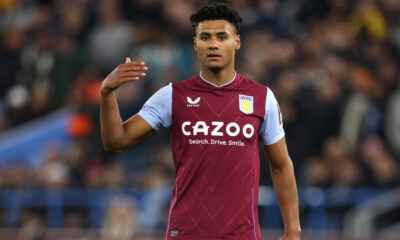Features
The fallout from football’s lucrative TV deal
A detailed look at what the Premier League’s record television deal with Sky and BT means for the clubs and the knock-on effect it could have on the fans.
As much as it may have been expected, the headline figure from the Premiership’s latest round of negotiations on TV rights prompted a huge wave of discussion, debate and derision.
When BT Sport entered into the bidding process back in 2012, starting a surprise head-to-head battle with its bitter rival Sky, a high stakes game was set in motion that has led to the Premiership benefitting hugely.
The cost to televise each game will increase to over £10 million, 70% more than at the moment. In total, the value of live Premiership football rights has increased to £5.14 billion from the UK alone: and around £3.5 billion more is expected to come from around the world.
Some of the fallout from the deal is already known, as the market’s belief that BT Sport got a better deal – paying £3.4 million less per game than Sky –caused a round of buying of BT and selling of Sky. Sky’s shares have since recovered somewhat, but the amount that they paid is nothing short of staggering. The total figure, £4.17 billion, is around a quarter of Sky’s total market cap; it is about equal to Sky’s total revenue in the last six months of 2014.
Much of the debate surrounding the new deal comes to where the money should be spent by the Premiership, and its clubs. So what could happen if clubs choose to invest the money in new players, by giving back to the fans or somewhere else entirely?
Buying new players is the immediately obvious avenue for increased Premiership spending. Each increase in TV revenue tends to lead to increased wages and player expenditure, as clubs seek to consolidate their position in football’s richest league.
But with British players coming at a premium and foreign clubs likely to demand higher prices in the knowledge that Premiership clubs can afford it, are there any bargains left to be found? At the moment, the state of the global economy means that the strength of the pound and relative weakness of the euro (not to mention the currencies tied to the euro, like the Turkish lira, Croatian kuna and Russian rouble) could lead to some stunning savings on players.
Those who trade the world’s forex markets are uncertain, though, as to how long the current situation will last. So whether a deal will still be available this summer – let alone in 2016, when the TV rights kick in – is unknown. That, coupled with the financial fair play rules that limit the possible increase in wages from the TV deal to £4 million, make another ramp up of player expenditure seem unlikely.
If splashing cash on new players isn’t viable, Premiership clubs could listen to the cries of their fans and lower entry prices to stadiums. As well as increasing the attractiveness of the league to worldwide markets and improving fan relations, this could well impact the business of those who cater to fans on match day.
The Trainline, Virgin Trains and Stagecoach could see much bigger numbers of travelling away fans booking trains and buses. The impact on pubs should also be beneficial: supporters tend to drink in pubs before and after games, and the increased number of televised games will outweigh the loss of punters to stadiums.
That increase in televised games, with both BT and Sky increasing the amount of matches they show each season and global coverage expected to increase as well, will be celebrated by those companies who sponsor top-flight teams.
General motors – owners of Chevrolet, Manchester United’s sponsor –might be happy to see some more return on its significant investment. Sponsors of Premiership hopefuls in the Championship may have gotten a better deal, however, with market-newcomers Just Eat’s backing of Derby County looking promising.
From 2016, the Premiership will become the second most lucrative league on the planet, second only to the NFL. The amount of wealth generated for clubs within it should have ramifications far and wide.
Whether we see a fairer football league emerge over the next few years, with cheaper tickets, more equality between clubs and investments in grassroots sport, is not yet knowable. Players, fans and sponsors will all be hoping that they get their share of the spoils – it is up to clubs to decide who comes out happy and who doesn’t.
















